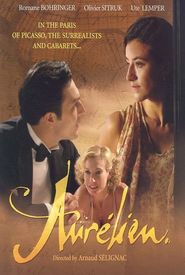Louis Aragon was born on October 3, 1897, in Paris, France, where he would later become a prominent figure in the French literary and artistic circles.
He graduated from Lycée Carnot and then pursued his studies in medicine at the Sorbonne, where he befriended fellow medical student André Breton, with whom he would later develop a lifelong friendship.
In 1917, Aragon was drafted into the First World War and served in a military hospital, where he met Guillaume Apollinaire, with whom he formed a close friendship. Together with Breton, Paul Éluard, and Philippe Soupault, Aragon continued to develop the ideas of Surrealism, which were initially formulated by Apollinaire.
Aragon's evolution from Dada to Surrealism culminated with the publication of 'Manifeste du Surréalisme' in 1924, and he further solidified his reputation as a leading figure in the movement with the publication of 'Le Libertinage', a collection of short stories and episodes, in the same year.
In 1927, Aragon became embroiled in a two-year affair with flamboyant publisher Nancy Cunard, heiress to the Cunard shipping fortune, which inspired him to write what would later be described by Albert Camus as "the best and most beautiful of erotic texts". Although he was at the peak of his radical opposition to old rules and had joined the French Communist Party, Aragon refused to publish the text under his own name.
Aragon's political activism continued to evolve, and he became increasingly radical in his opposition to old rules, joining the French Communist Party and meeting Elsa Triolet, sister of Russian actress Lilya Brik. In 1930, they traveled to the Soviet Union on the invitation of Maxim Gorky, where they participated in the 1st conference of Soviet writers.
Under the influence of his wife and her friend Vladimir Mayakovsky, Aragon published "The Red Front", calling for a revolution in France, for which he received a five-year suspended sentence. At the same time, he founded the International Association of Writers for the Defence of Culture with André Malraux and denounced the bourgeois culture, becoming a critical opponent of André Gide.
During the Second World War, Aragon wrote anti-fascist poetry under various pen-names for 'Les Editions de Minuit' and 'Lettres Francaise', and was active in the French Resistance.
In the post-war period, Aragon continued to write and publish, focusing on non-Russian writers from ethnic republics of the USSR in his 1955 essay on Soviet literature. In 1962, he published "Parallelled History" of the Soviet Union and the United States with André Maurois, and his mild attitude to Socialist realism became more critical when Nikita Khrushchev was dismissed by Leonid Brezhnev.
In 1971, Aragon published a comprehensive biography of Henri Matisse, and after the death of his wife, he revealed his bisexuality and appeared at gay parades. He died on December 24, 1982, in Paris, France, leaving behind a legacy as a prominent figure in French literature and politics.














